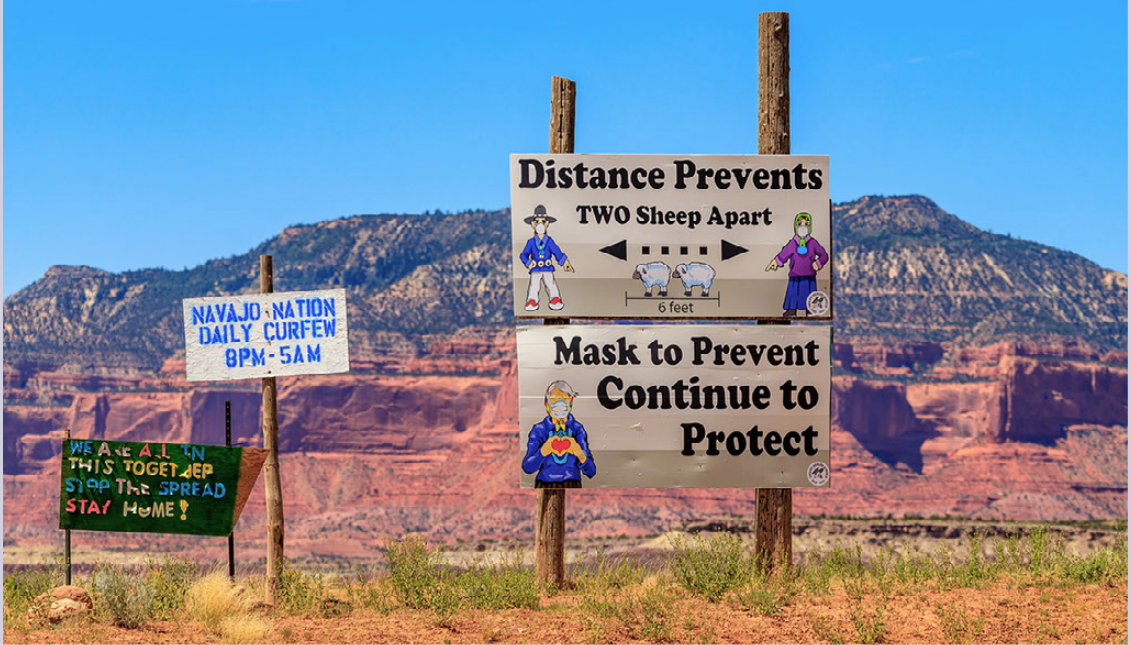
Close to full passage, Biden’s $1.9 trillion COVID-19 relief bill will provide record relief to Native Americans
The funds will be vital to the recovery of Native American populations across the country that have been some of the most-impacted during the pandemic.
When Senate Democrats narrowly passed the $1.9 trillion COVID-19 relief package on Saturday, March 6, they also passed the U.S. government’s largest-ever investment in Native American programs.
Hawaiian Senator Brian Schatz, chairman of the Senate Committee on Indian Affairs, helped secure more than $31.2 billion in dedicated funding for Native communities and Tribal governments.
Since the beginning of the pandemic, Native American communities have been among the hardest hit by the virus.
Compared with white people, Indigenous people are nearly twice as likely to be infected with coronavirus, more than three and a half times more likely to be hospitalized, and more than twice as likely to die from the virus, according to data provided by the CDC.
The Navajo community was devastated by the pandemic in the early months. The Navajo Nation is the largest land retained by an Indigenous tribe in the country, and has a population of 173,637.
The Navajo Nation already faced challenges that make dealing with a pandemic particularly difficult. About 30% of the Navajo population does not have access to running water, at a time when hand-washing was promoted as a key preventive measure.
Despite being an energy-exporting hotspot, of the roughly 55,000 Indigenous households on Navajo lands, around 15,000 of them have no access to electricity.
Around 14,000 Navajo Nation residents still do not have electricity in their homes. That's making it harder to follow COVID-19 guidelines. https://t.co/7K0ueJaenn
— grist (@grist) March 8, 2021
At one point, it had more coronavirus cases per capita on its reservation than any of the 50 U.S states. In December, Navajo Nation leaders and medical professionals were desperately sounding alarms about shortages of hospital beds, nurses, and oxygen supplies as cases surged in the area.
The devastating trend inspired 31-year-old Diné activist, Allie Young, to create a grassroots initiative to educate and empower Navajo youth about the virus.
Protect the Sacred has been active in getting community members to receive their vaccines.
This is why we don’t give up. We continue to fight. #AboutTime #DoTheRightThing https://t.co/35z51qnAes
— Allie Young (@allieyoung13) March 9, 2021
Protect the Sacred’s website explains that the Navajo Nation only has 13 grocery stores, 12 health facilities, 170 hospital beds, 52 isolation rooms and 28 ventilators.
Fortunately, more help is on the way and the responsibility to provide mutual aid won’t be resting solely on Young’s shoulders anymore.
The coronavirus relief bill is expected to be passed one final time in the House and be signed into law by President Joe Biden by March 14.
RELATED CONTENT
If passed, the money will go directly towards helping American Indians, Alaska Natives and Native Hawaiians focus on economic recovery.
The funding will be broken down to support different health services as well as education, housing and urban development and other community needs like water access, food security, infrastructure changes and reducing domestic violence.
$2.3 billion will go towards vaccines, testing and tracing at the Indian Health Services (IHS.)
IHS will also receive $600 million for health facilities construction and sanitation programs, $500 million for clinical health services, $240 million for mental and behavioral health services, $140 million for improving telehealth access, and $10 million for portable water delivery.
More than $1 billion will directly benefit Native families, in the form of tribal child care programs and assistance to tribal Temporary Assistance for Needy Families grantees. $1.1 billion will support Native education programs, and $19 million to go toward combating domestic violence.
Jonathan Nez, president of the Navajo Nation applauded the bill in a statement on Saturday, where he thanked Sen. Mark Kelly for supporting it.
'Now is not the time to come and visit relatives here on the Navajo Nation or even visitors to come and sightsee' — Navajo Nation President Jonathan Nez says the Nation is doing its part to curb COVID-19 cases in the region by entering a 3-week lockdown pic.twitter.com/fp8YLBPRbW
— NowThis (@nowthisnews) November 21, 2020
Nez mentioned that the bill goes beyond the support offered in the CARES Act funds, which was able to connect over 700 families to electricity, install 300 off-grid solar home installations, provide burial assistance for families that lost loved ones from the virus, and much more.
“We stand ready to provide further support for our people, and we ask Congress to support this important initiative to overcome the COVID-19 pandemic,” Nez said.











LEAVE A COMMENT:
Join the discussion! Leave a comment.